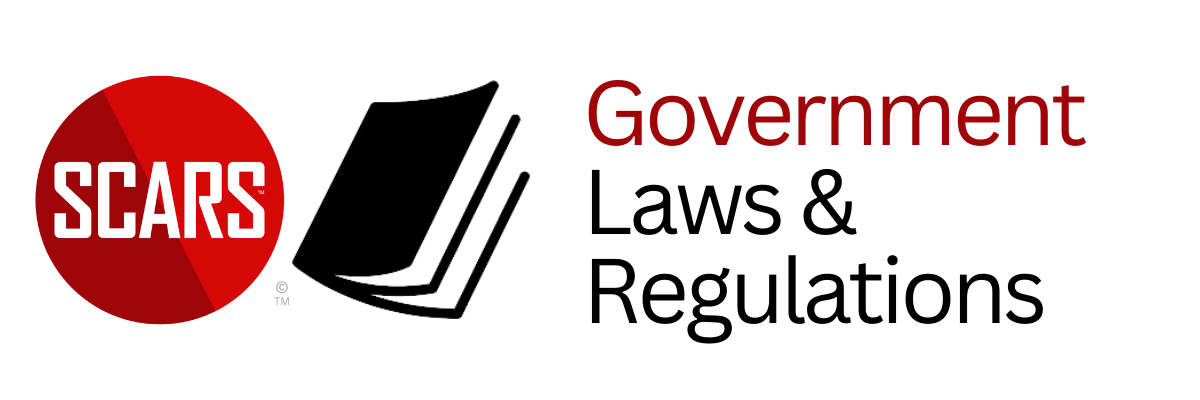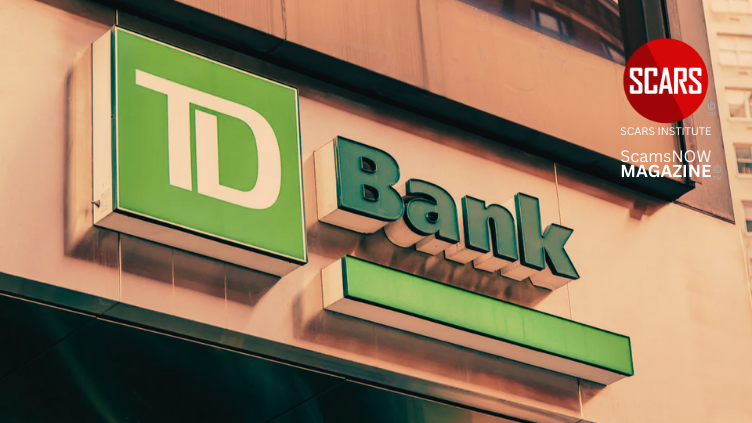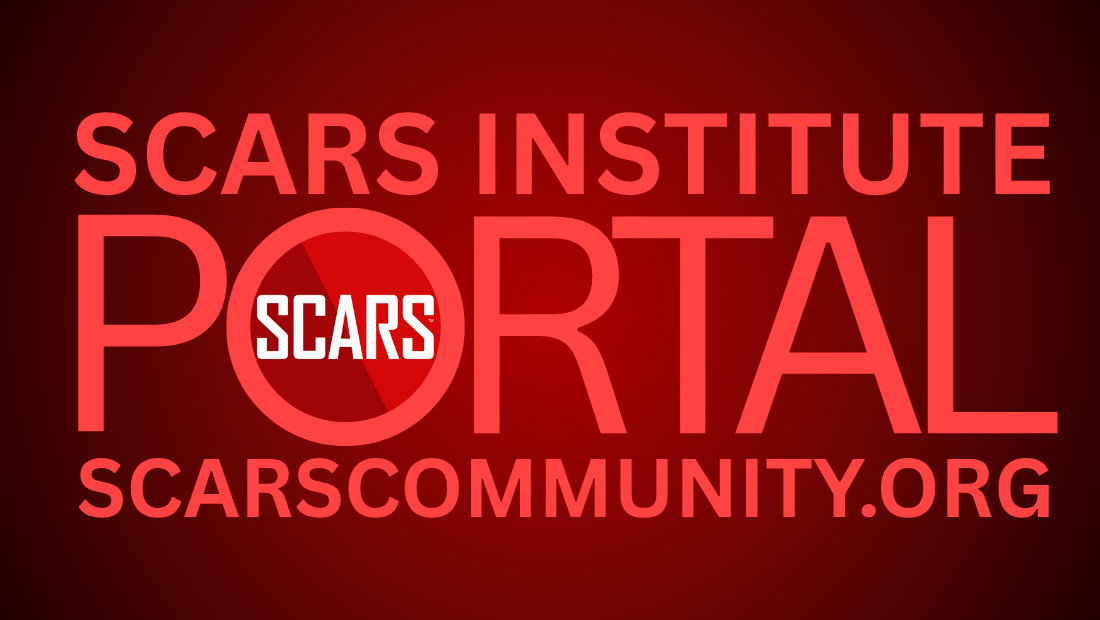BREAKING NEWS: FinCEN Assesses Record $1.3 Billion Penalty against TD Bank
Punishing a U.S. Bank for Massive Violations of Money Laundering Practices
Primary Category: NEWS
Author:
• SCARS Editorial Team – Society of Citizens Against Relationship Scams Inc.
• Portions: FinCEN
About This Article
The $1.3 billion penalty assessed by FinCEN against TD Bank for massive violations of anti-money laundering (AML) practices marks a pivotal moment in U.S. banking safety and regulatory compliance.
TD Bank’s failure to implement an effective AML program enabled widespread criminal activity, including narcotics trafficking, human trafficking, and terrorist financing, to penetrate the financial system. The historic settlement underscores the critical importance of robust AML controls and serves as a warning to other financial institutions about the severe consequences of neglecting these safeguards.
Moving forward, U.S. banks must prioritize AML compliance and develop strong internal oversight to protect the financial system from illicit activity.

BREAKING NEWS: FinCEN Assesses Record $1.3 Billion Penalty against TD Bank
Punishing a U.S. Bank for Massive Violations of Money Laundering Practices
According to U.S. FinCEN:
The U.S. Department of the Treasury’s Financial Crimes Enforcement Network (FinCEN) assessed a record $1.3 billion penalty against TD Bank, N.A. and TD Bank USA, N.A. (collectively, TD Bank, or the Bank) for violations of the Bank Secrecy Act (BSA), the primary U.S. anti-money laundering (AML) law that safeguards the financial system from illicit use. TD Bank is among the largest banks in the United States.
FinCEN’s $1.3 billion settlement is the largest penalty against a depository institution in U.S. Treasury and FinCEN history. FinCEN’s action also imposes a four-year independent monitorship to oversee TD Bank’s required remediation.
“The vast majority of financial institutions have partnered with FinCEN to protect the integrity of the U.S. financial system. TD Bank did the opposite. From fentanyl and narcotics trafficking, to scams & fraud, to cybercrime, to terrorist financing and human trafficking, TD Bank’s chronic failures provided fertile ground for a host of illicit activity to penetrate our financial system,” said Deputy Secretary of the Treasury Wally Adeyemo. “Our historic action represents a significant step in safeguarding our country and communities from criminal activity like fentanyl and human trafficking by requiring TD Bank to fix the vast deficiencies in its safeguards against money laundering. The Biden-Harris Administration is committed to taking action to keep our communities safe from the sort of behavior facilitated by illicit finance and enabled by TD Bank’s lax oversight, and we are making clear that financial institutions will face severe repercussions if they fail to maintain necessary safeguards.”
“For over a decade, TD Bank allowed its AML program to languish, making TD Bank a target for illicit actors—including its own employees,” said FinCEN Director Andrea Gacki. “The magnitude of FinCEN’s action is consistent with the harm that TD Bank’s failures caused. This historic action should serve as a powerful reminder that we will not tolerate financial institutions who flagrantly violate their obligation to safeguard our financial system from criminal activity.”
As part of the settlement, TD Bank admits that it willfully failed to implement and maintain an AML program that met the minimum requirements of the BSA and FinCEN’s implementing regulations. FinCEN’s investigation revealed that TD Bank knew that its AML program was neither appropriately designed nor adequately resourced to mitigate the actual illicit finance risks that it faced on multiple fronts. Among other failures, TD Bank’s processing of peer-to-peer transactions (e.g., Venmo and Zelle), including transactions indicative of human trafficking, was insufficient, and as a result, TD Bank failed to identify and timely report these transactions to FinCEN. TD Bank also allowed significant backlogs of potentially suspicious activity to persist, thereby depriving law enforcement of necessary information. TD Bank knew that it was the subject of significant funnel account activity involving high-risk countries yet failed to take timely action to address this substantial risk.
TD Bank also failed to timely detect suspicious activity involving its own employees. For example, in 2021, a TD Bank employee facilitated the laundering of narcotics proceeds in exchange for bribes. This employee opened numerous accounts, including for shell companies, that then engaged in millions of dollars’ worth of funnel account activity in a high-risk jurisdiction where TD Bank maintained no operations. TD Bank knew that this type of activity was not subject to appropriate controls and failed to mitigate this glaring risk.
As a result of these failures, TD Bank allowed trillions of dollars in transactions annually to go unmonitored for potentially suspicious activity that would require reporting to FinCEN. Specifically, during the time period covered by the Consent Order, TD Bank willfully failed to file Suspicious Activity Reports (SARs) on thousands of suspicious transactions—totaling approximately $1.5 billion. Additionally, TD Bank’s Currency Transaction Reports (CTRs) of large cash transactions were often delayed, and, in some instances, misleading to law enforcement.
TD Bank failed to properly limit or report suspicious transactions and cash activity that included substantial criminal activity, as further detailed in the Consent Order. For example, from 2017 to 2021, TD Bank facilitated over $400 million in transactions for Da Ying Sze (Sze), who pled guilty to money laundering in 2022 for his role in conspiring to hide proceeds of narcotics trafficking. Sze conducted most of these transactions in large sums of cash (often in bags that Sze brought into TD Bank branches), yet the Bank failed to timely limit or restrict Sze’s activity. TD Bank failed to timely file SARs on a substantial portion of this activity and also failed to identify Sze in more than 500 CTRs totaling more than $400 million, which hindered FinCEN and law enforcement.
TD Bank has agreed to engage an independent consultant, who, under the auspices of FinCEN’s monitor, would conduct a historical analysis of TD Bank’s transaction data, often referred to as a “SAR lookback,” to remediate the SAR filings that TD Bank missed due to its extensive control gaps. TD Bank has also agreed that the monitor will oversee an independent, end-to-end review of its AML Program. For the first time, FinCEN is imposing accountability and data governance reviews. The accountability review will independently assess the involvement or failure to escalate by TD Bank personnel in conjunction with certain conduct described in the Consent Order’s Statement of Facts. The accountability review will provide corresponding recommendations to the Bank, including recommendations related to the culture of compliance at TD Bank. The data governance review will help to ensure that TD Bank identifies and fixes the root causes of many gaps in its AML program.
The Department of Justice, the Office of the Comptroller of the Currency, and the Board of Governors of the Federal Reserve System will also announce settlements in parallel investigations today.
FinCEN’s Enforcement and Compliance Division is responsible for investigating serious violations of the BSA. For additional information regarding the facts and circumstances associated with this enforcement action, including the specific BSA violations and their underlying causes, please see the Consent Order between FinCEN and TD Bank.
SCARS Institute Analysis of FinCEN’s $1.3 Billion Penalty on TD Bank: Implications for U.S. Banking Safety and Anti-Money Laundering Compliance
The recent record-breaking $1.3 billion penalty against TD Bank by the U.S. Department of the Treasury’s Financial Crimes Enforcement Network (FinCEN) highlights several critical issues within the banking industry regarding anti-money laundering (AML) compliance and the broader safety of the U.S. financial system. This unprecedented enforcement action signifies a pivotal moment in the fight against illicit financial activity, reinforcing the importance of robust AML controls and the consequences of systemic failures in their implementation.
Significance for U.S. Banking Safety
The penalty against TD Bank underscores a growing awareness within financial regulatory bodies of the vulnerabilities in the U.S. banking system, especially in the context of international money laundering, narcotics trafficking, human trafficking, scams and fraud, cybercrime, and terrorist financing. The bank’s failure to identify and report suspicious activity across trillions of dollars in transactions indicates that even the largest financial institutions can become weak points in national and global financial safety when adequate safeguards are not in place.
This development serves as a stark reminder to the banking sector that deficiencies in AML programs not only pose risks to the institution itself but also to national security and the integrity of the U.S. financial system. TD Bank’s failure to prevent its own employees from engaging in illicit activities (e.g., laundering narcotics proceeds) highlights the importance of internal controls, employee oversight, and a culture of compliance that prioritizes vigilance over revenue generation.
The Role of AML Compliance and the Bank Secrecy Act
TD Bank’s settlement with FinCEN reveals deep flaws in the bank’s adherence to the Bank Secrecy Act (BSA), which is the cornerstone of the U.S. AML framework. The BSA mandates that financial institutions implement systems to detect, report, and prevent money laundering and other illegal activities. The sheer volume of unreported suspicious transactions and delayed Currency Transaction Reports (CTRs) illustrates how systemic non-compliance can enable large-scale criminal enterprises to operate undetected.
Banks are expected to maintain robust systems for monitoring transactions, particularly in areas involving high-risk activities such as peer-to-peer payment platforms, cash-intensive businesses, and international transactions. By failing to address known gaps in its AML program, TD Bank allowed significant amounts of criminal funds to pass through the system, bypassing essential safeguards.
This failure is particularly concerning as banks serve as gatekeepers to the financial system, and their role in preventing money laundering is critical. Without adequate controls, banks become conduits for illicit money, undermining trust in the financial system and enabling the growth of organized crime.
The Importance of Independent Oversight and Monitoring
One of the notable aspects of FinCEN’s enforcement action is the imposition of a four-year independent monitorship to oversee TD Bank’s remediation efforts. This independent review is not just about fixing current AML program failures but also identifying systemic weaknesses, including accountability lapses among senior management and the inadequacy of data governance systems. The independent monitor will ensure that the root causes of compliance breakdowns are addressed, offering a model for other banks in similar positions.
The accountability and data governance reviews are particularly critical because they address not only the technical deficiencies but also the cultural ones that may have enabled these failures. A weak compliance culture at any financial institution can lead to a lack of enforcement of AML procedures, insufficient resources allocated to compliance teams, and ultimately, unchecked criminal activity. TD Bank’s case demonstrates the need for stronger leadership and engagement from top management to create a compliance-first culture within large financial institutions.
Wider Implications for the U.S. Financial Sector
This historic enforcement action sends a clear message to all U.S. financial institutions: failure to comply with AML regulations, particularly the BSA, will result in severe penalties and increased regulatory scrutiny. The settlement indicates that regulators are now taking a more aggressive stance on banks that do not prioritize AML compliance and that financial institutions must be prepared to implement comprehensive and effective monitoring systems or face significant financial and reputational damage.
As criminal actors continue to exploit global financial systems for illegal activities, the importance of a proactive, well-resourced, and adaptable AML compliance framework cannot be overstated. U.S. banks must not only adhere to regulatory requirements but also anticipate new threats, especially with the rapid rise of digital transactions and cryptocurrencies, which present new challenges for compliance teams.
Conclusion
Strengthening AML Compliance to Secure the Financial System
FinCEN’s unprecedented action against TD Bank represents a critical step toward safeguarding the U.S. financial system from abuse by criminal organizations. For other banks, the case serves as a powerful reminder of the consequences of failing to maintain effective AML controls and the importance of fostering a strong culture of compliance at all levels. Moving forward, financial institutions must prioritize AML compliance as a core element of their operations, ensuring they have the necessary tools, resources, and oversight to protect the financial system from illicit activity.
-/ 30 /-
What do you think about this?
Please share your thoughts in a comment below!
-/ 30 /-
What do you think about this?
Please share your thoughts in a comment below!
TABLE OF CONTENTS
- Punishing a U.S. Bank for Massive Violations of Money Laundering Practices
- About This Article
- BREAKING NEWS: FinCEN Assesses Record $1.3 Billion Penalty against TD Bank
- According to U.S. FinCEN:
- SCARS Institute Analysis of FinCEN’s $1.3 Billion Penalty on TD Bank: Implications for U.S. Banking Safety and Anti-Money Laundering Compliance
- Conclusion
CATEGORIES
![NavyLogo@4x-81[1] BREAKING NEWS: FinCEN Assesses Record $1.3 Billion Penalty against TD Bank - 2024](https://scamsnow.com/wp-content/uploads/2025/04/NavyLogo@4x-811.png)
ARTICLE META
Important Information for New Scam Victims
- Please visit www.ScamVictimsSupport.org – a SCARS Website for New Scam Victims & Sextortion Victims.
- SCARS Institute now offers its free, safe, and private Scam Survivor’s Support Community at www.SCARScommunity.org – this is not on a social media platform, it is our own safe & secure platform created by the SCARS Institute especially for scam victims & survivors.
- SCARS Institute now offers a free recovery learning program at www.SCARSeducation.org.
- Please visit www.ScamPsychology.org – to more fully understand the psychological concepts involved in scams and scam victim recovery.
If you are looking for local trauma counselors, please visit counseling.AgainstScams.org
If you need to speak with someone now, you can dial 988 or find phone numbers for crisis hotlines all around the world here: www.opencounseling.com/suicide-hotlines
Statement About Victim Blaming
Some of our articles discuss various aspects of victims. This is both about better understanding victims (the science of victimology) and their behaviors and psychology. This helps us to educate victims/survivors about why these crimes happened and not to blame themselves, better develop recovery programs, and help victims avoid scams in the future. At times, this may sound like blaming the victim, but it does not blame scam victims; we are simply explaining the hows and whys of the experience victims have.
These articles, about the Psychology of Scams or Victim Psychology – meaning that all humans have psychological or cognitive characteristics in common that can either be exploited or work against us – help us all to understand the unique challenges victims face before, during, and after scams, fraud, or cybercrimes. These sometimes talk about some of the vulnerabilities the scammers exploit. Victims rarely have control of them or are even aware of them, until something like a scam happens, and then they can learn how their mind works and how to overcome these mechanisms.
Articles like these help victims and others understand these processes and how to help prevent them from being exploited again or to help them recover more easily by understanding their post-scam behaviors. Learn more about the Psychology of Scams at www.ScamPsychology.org
SCARS INSTITUTE RESOURCES:
If You Have Been Victimized By A Scam Or Cybercrime
♦ If you are a victim of scams, go to www.ScamVictimsSupport.org for real knowledge and help
♦ SCARS Institute now offers its free, safe, and private Scam Survivor’s Support Community at www.SCARScommunity.org/register – this is not on a social media platform, it is our own safe & secure platform created by the SCARS Institute especially for scam victims & survivors.
♦ Enroll in SCARS Scam Survivor’s School now at www.SCARSeducation.org
♦ To report criminals, visit https://reporting.AgainstScams.org – we will NEVER give your data to money recovery companies like some do!
♦ Follow us and find our podcasts, webinars, and helpful videos on YouTube: https://www.youtube.com/@RomancescamsNowcom
♦ Learn about the Psychology of Scams at www.ScamPsychology.org
♦ Dig deeper into the reality of scams, fraud, and cybercrime at www.ScamsNOW.com and www.RomanceScamsNOW.com
♦ Scam Survivor’s Stories: www.ScamSurvivorStories.org
♦ For Scam Victim Advocates visit www.ScamVictimsAdvocates.org
♦ See more scammer photos on www.ScammerPhotos.com
You can also find the SCARS Institute’s knowledge and information on Facebook, Instagram, X, LinkedIn, and TruthSocial
Psychology Disclaimer:
All articles about psychology and the human brain on this website are for information & education only
The information provided in this and other SCARS articles are intended for educational and self-help purposes only and should not be construed as a substitute for professional therapy or counseling.
Note about Mindfulness: Mindfulness practices have the potential to create psychological distress for some individuals. Please consult a mental health professional or experienced meditation instructor for guidance should you encounter difficulties.
While any self-help techniques outlined herein may be beneficial for scam victims seeking to recover from their experience and move towards recovery, it is important to consult with a qualified mental health professional before initiating any course of action. Each individual’s experience and needs are unique, and what works for one person may not be suitable for another.
Additionally, any approach may not be appropriate for individuals with certain pre-existing mental health conditions or trauma histories. It is advisable to seek guidance from a licensed therapist or counselor who can provide personalized support, guidance, and treatment tailored to your specific needs.
If you are experiencing significant distress or emotional difficulties related to a scam or other traumatic event, please consult your doctor or mental health provider for appropriate care and support.
Also read our SCARS Institute Statement about Professional Care for Scam Victims – click here
If you are in crisis, feeling desperate, or in despair, please call 988 or your local crisis hotline – international numbers here.
More ScamsNOW.com Articles
A Question of Trust
At the SCARS Institute, we invite you to do your own research on the topics we speak about and publish. Our team investigates the subject being discussed, especially when it comes to understanding the scam victims-survivors’ experience. You can do Google searches, but in many cases, you will have to wade through scientific papers and studies. However, remember that biases and perspectives matter and influence the outcome. Regardless, we encourage you to explore these topics as thoroughly as you can for your own awareness.
























![scars-institute[1] BREAKING NEWS: FinCEN Assesses Record $1.3 Billion Penalty against TD Bank - 2024](https://scamsnow.com/wp-content/uploads/2025/04/scars-institute1.png)

![niprc1.png1_-150×1501-1[1] BREAKING NEWS: FinCEN Assesses Record $1.3 Billion Penalty against TD Bank - 2024](https://scamsnow.com/wp-content/uploads/2025/04/niprc1.png1_-150x1501-11.webp)